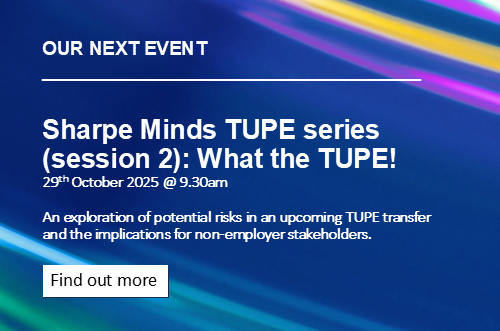- Details
The Government’s Waste Tracking Response
![]() On 21 October 2023 the Government published its long awaited response to the Consultation on implementation of mandatory electronic waste tracking. Sally Stock and Natasha Barlow set out the key points.
On 21 October 2023 the Government published its long awaited response to the Consultation on implementation of mandatory electronic waste tracking. Sally Stock and Natasha Barlow set out the key points.
In essence the response confirms the Government’s policy paper published in April 2022 and adds that mandatory tracking will come into force by April 2025 with voluntary access to the electronic tracking system in 2024.
The headlines of the response (mirroring the policy paper) that will interest our clients are as follows:
- Waste data will be recorded in a new centralised tracking system.
- Tracking will apply to both hazardous and non-hazardous waste (replacing waste transfer notes and hazardous waste consignment notes).
- The general rule is that it will apply from where the waste is produced (although note important exceptions below).
- The requirements are greater than existing ones with more data recorded and speedier (aiming at real time) recording required.
Waste will be tracked when it:
- passes to a different operator;
- passes to a different site;
- control is passed (to a different entity or operating authorisation;
- is deposited, recovered or treated under an Environmental Permit; or
- (for hazardous waste) is handled under a registered exemption.
Waste collection authorities will be relieved to see that the exceptions remain as expected, including (with further exceptions being considered):
- Household waste from domestic premises collected by local authorities
- Household waste recycling centres (tracking will be required for commercial waste and when it leaves the HWRC)
- Litter collection
- Incidental waste (e.g. waste generated by tradespeople who deliver waste to a collection point)
- Waste samples used for analysis
In order to understand the full waste cycle, waste operators will be required to record the following information about treatment:
- Intended waste hierarchy option i.e. reuse, recycle, recover or dispose
- Intended waste management method e.g. landfill, shred, compost
For Green List Waste (i.e. non-hazardous waste being shipped abroad with simplified requirements) the point of entry and exit from the UK and how it is transported (e.g. shipping container) will be recorded.
Following an initial period of familiarisation and education, enforcement will take the form of fixed and variable penalties with no maximum to the variable fines.
Although it does not provide anything new, the government’s response will be welcomed by the waste industry as confirmation of the direction of travel.
We advise waste authorities on all manner of issues relating to the waste sector and our experts are keeping a close eye on changes in waste legislation and policy to guide authorities through the intricacies of the waste reforms and to advise on any other waste related issues.
For further insight and resources on local government legal issues from Sharpe Pritchard, please visit the SharpeEdge page by clicking on the banner below.
This article is for general awareness only and does not constitute legal or professional advice. The law may have changed since this page was first published. If you would like further advice and assistance in relation to any issue raised in this article, please contact us by telephone or email
|
Click here to view our archived articles or search below.
|
|
ABOUT SHARPE PRITCHARD
We are a national firm of public law specialists, serving local authorities, other public sector organisations and registered social landlords, as well as commercial clients and the third sector. Our team advises on a wide range of public law matters, spanning electoral law, procurement, construction, infrastructure, data protection and information law, planning and dispute resolution, to name a few key specialisms. All public sector organisations have a route to instruct us through the various frameworks we are appointed to. To find out more about our services, please click here.
|
|
OUR RECENT ARTICLES
October 22, 2025
The ‘Hillsborough Bill’ – Voices for victims or just more lip service?Jonathan Blunden, Alastair Lewis and Conrad Turnock talk through the recently introduced 'Hillsborough' Bill, aimed at giving victims of state injustice a meaningful voice.
October 09, 2025
Twelve New Towns for the FutureJames Goldthorpe and Conrad Turnock summarise the New Towns Taskforce’s report to Government, published on 28th September, and ask - what next?
September 30, 2025
Key updates to the Administrative Court GuideChloe McQuillan and Jonathan Blunden dive into recent amendments to the Administrative Court Judicial Review Guide, exploring what they mean for practitioners.
September 12, 2025
Algorithm and State: Automated decision-making in the UK Public SectorBeatrice Wood explores the impact of Automated Decision making on the UK government and local authority sector.
|
|
OUR KEY LOCAL GOVERNMENT CONTACTS
|
||
|
Partner 020 7406 4600 Find out more |
||
|
Partner 020 7406 4600 Find out more |
||
|
Rachel Murray-Smith Partner 020 7406 4600 Find out more |







 Catherine Newman
Catherine Newman
